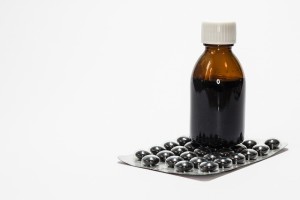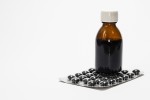by Darrel Crain, DC – ICPA.org:
Very young children come down with colds. Agreement with this statement is universal among parents, pediatricians, drug makers, and even the Food and Drug Administration (FDA). But there is less agreement over whether or not medicine is helpful to little ones suffering from a cold.
“It’s important to point out that these medicines are safe and effective when used as directed…” said Linda A. Suydam, president of the Consumer Healthcare Products Association, quoted in The Washington Post, October 12, 2007.
“Clearly, the products don’t work and are unsafe,” said Joshua M. Sharfstein, M.D., Baltimore Health Commissioner, also quoted in The Washington Post.
Could these two views be any further apart? Both of them can’t be right, so which one is making things up, the cold medicine industry spokesperson, or the doctor?
“Take a cold remedy and get over the cold in seven days, otherwise recovery will take a week,” according to traditional folk wisdom.
The American Academy of Pediatrics tends to agree with tradition on this particular point and recommends against medicating young children to treat cold symptoms. Drug makers, on the other hand, spent about 50 million bucks last year to convince parents to buy over-the-counter (OTC) drugs to treat cold symptoms. And the advertising must be working because sales reportedly jumped 20 percent last year and were expected to climb again this year—up until last week.
Fourteen infant cold medications were pulled from store shelves across the country, just seven days before an FDA committee was slated to begin investigating the drugs.
“An FDA review prepared for next week’s meeting describes dozens of cases of convulsions, heart problems, trouble breathing, neurological complications and other reactions, including at least 54 deaths involving decongestants and 69 deaths involving antihistamines,” reports The Washington Post.
Dr. Sharfstein long ago alerted the FDA to widespread problems with the drugs after a total of 900 Maryland children under 4 years of age suffered an overdose in a single year, 2004.
“Given that there are serious consequences, including death, associated with the use of these products without compelling reason to use them, why are they being marketed for children?” Sharfstein asked. “The contrast between the state of the evidence and the displays in drugstores could not be more stark.”
“There is no evidence that the products are effective for young children, and there is evidence they can be unsafe, even at the usual doses. This is not just about misuse,” he said, noting that the dosages typically used are untested estimates based on studies in adults. “That’s why we are asking FDA to clearly label these products against use by children under age 6,” according to The Washington Post.
It is an interesting paradox that doctors are in the position of pleading with the agency in charge of drug safety to try and halt medical treatment of non-medical symptoms. Their preferred recommendations sound familiar: bed rest, lots of fluids, and chicken soup. And let’s not forget vitamin C.
“Whatever grandma recommends that’s nutritious, get the kid to eat it…It’s better than all the over-the-counter stuff,” said Daniel Rauch, M.D., director of the pediatric program at NYU Medical Center, quoted in the New York Daily News, October 12, 2007.
“These medications were never designed to cure colds but only to treat cold symptoms,” said Katherine Tom-Revzon, pediatric pharmacist at the Children’s Hospital at Montefiore in the Bronx. “In children under 2, there was little evidence they were effective, anyway,” reports the Daily News.
A robust, innate immune response in both children and adults requires expression, not suppression. The symptoms of a cold are self-limiting and benign for the vast majority of well-fed people; they are part of a lifelong process of encountering microbes in the environment and mounting an innate, short-term inflammatory response that results in cellular memory and strengthened immunity.
“This is not a situation in which pediatric data are lacking and we are unable to say one way or the other,” wrote Jay Berkelhamer, M.D., in a letter to the FDA last month. Dr. Berkelhamer is the national president of the American Academy of Pediatrics. In multiple studies, they have “been found not to be effective in this population at all,” according to Berkelhamer in an Associated Press article October 12, 2007.
Article originally posted at ICPA.org.
